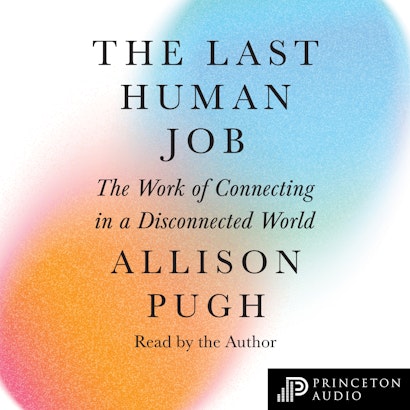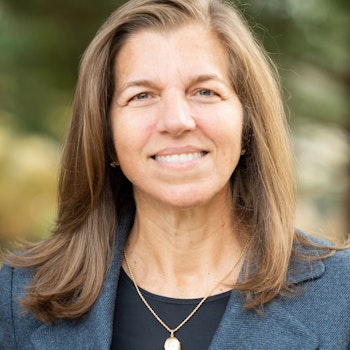With the rapid development of artificial intelligence and labor-saving technologies like self-checkouts and automated factories, the future of work has never been more uncertain, and even jobs requiring high levels of human interaction are no longer safe. The Last Human Job explores the human connections that underlie our work, arguing that what people do for each other in these settings is valuable and worth preserving.
Drawing on in-depth interviews and observations with people in a broad range of professions—from physicians, teachers, and coaches to chaplains, therapists, caregivers, and hairdressers—Allison Pugh develops the concept of “connective labor,” a kind of work that relies on empathy, the spontaneity of human contact, and a mutual recognition of each other’s humanity. The threats to connective labor are not only those posed by advances in AI or apps; Pugh demonstrates how profit-driven campaigns imposing industrial logic shrink the time for workers to connect, enforce new priorities of data and metrics, and introduce standardized practices that hinder our ability to truly see each other. She concludes with profiles of organizations where connective labor thrives, offering practical steps for building a social architecture that works.
Vividly illustrating how connective labor enriches the lives of individuals and binds our communities together, The Last Human Job is a compelling argument for us to recognize, value, and protect humane work in an increasingly automated and disconnected world.
Awards and Recognition
- A New Scientist Non-Fiction and Popular Science Books to Look Forward To
- A New Scientist Best Science Non-Fiction Book of the Year So Far
- A Public Books Public Picks of the Year
Allison Pugh is professor of sociology and chair of the Department of Women, Gender, and Sexuality at the University of Virginia. She is the author of The Tumbleweed Society: Working and Caring in an Age of Insecurity and Longing and Belonging: Parents, Children, and Consumer Culture. Her writing has appeared in leading publications such as The New Yorker, the New York Times, and the New Republic.
“Digital systems are rapidly replacing human beings because, we are told, they are more efficient and less biased. The Last Human Job offers a refreshingly novel criticism of this logic, spotlighting the vital connective tissue created by human interaction that machines cannot possibly replicate. Allison Pugh’s call for connection is essential not only to ward off the well-documented dangers posed by artificial intelligence but, just as importantly, to sustain the collaborative labor needed for social change.”—Dorothy Roberts, author of Killing the Black Body and Torn Apart
“I can’t think of a timelier and more critical book for the age we live in than The Last Human Job. Healthcare interactions, social intercourse, and the daily acts of life are rapidly changing and being distorted by technological advances such as AI. Pugh gives us an insightful overview of these challenges and a road map for the future.”—Abraham Verghese, author of The Covenant of Water
“Based on years of probing interviews with therapists, doctors, teachers, chaplains, and others, Allison Pugh takes us to the frontline delivery of connective labor and makes a powerful case for why it matters so much. This is a mind-expanding and landmark book.”—Arlie Russell Hochschild, author of The Managed Heart: Commercialization of Human Feeling
“Allison Pugh has written an insightful, eye-opening book that gives us a new vocabulary and conceptual framework to capture care work and so much more. The Last Human Job is vital reading for anyone interested in technology and humanity.”—Anne-Marie Slaughter, CEO, New America
“The Last Human Job takes automation discourse to the next level. In a crowded field, Pugh stands out by engaging in rich, illuminating conversations with nurses, chaplains, therapists, and other ‘connective laborers,’ movingly demonstrating how they bring dignity, purpose, and understanding to their workplaces. The result is a brilliant synthesis of description and prescription, facts and values, and first-hand observation and theory: exactly what is needed now in public debates on AI and labor.”—Frank Pasquale, author of New Laws of Robotics: Defending Human Expertise in the Age of AI

